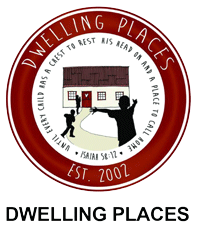Karamoja Project
Hundreds of children walk 290 miles on horrendous terrain, in a hard climate and usually alone to reach the streets of Kampala where they are greeted with worse conditions than they were in. What they thought would be a better life in reality is begging on the streets, no safe place to sleep, little food and water, and vulnerable to abuse.
We want to give these children a safe home in Karamoja and prevent them having to travel to Kampala in the search of better opportunities. We want to provide real and safe opportunities in their home village.
We are planning to build a hub that provides services to the people of Karamoja including a Vocational Secondary School and Community Clinic with social workers and finance staff. The nurse wages have been funded - THANK YOU!! - but the school, clinic, social workers’ and finance staff wages are still in need of funding.
It is only with caring and dedicated staff that we can transform children’s life and make change in communities.
Phase one of the project includes conveyancing, surveying, architecture costs, getting permission to build, setting foundations and employing staff members.
Phase one of the Karamoja hub needs £50,000 to fulfil all the costs of getting the project started.
We can only raise this with your help.
Would you like to host a fundraiser to help us raise the funds? See the link below for ideas and resources to help you.
Help us transform lives!
In 2020, the Ugandan government produced a report about the emuneration of street children in Uganda alongside charity Retrak. Their findings show the need for preventative measures in Kampala.
“Therefore, using the dual systems estimate method based on the number of children reporting to be of Karamojong ethnicity, it is estimated that there are roughly 3,600 Karamojong children, aged 7-17 years, living and/or working on the streets in Kampala, Jinja, Iganga and Mbale.”
“A much greater proportion of Karamojong children on the streets have never been to school (36%) compared with the rest of the street population (7%). This is in line with the norm for Karamoja where 58% of the population (all ages) have never been to school compared to a national average of 11%.”
Why are they travelling to other cities?
“The push factors for children coming from Karamoja appear to be very similar to other children. Poverty and family breakdown being the main reasons. A few children also mentioned the lack of food at home, which is likely to be more extreme in Karamoja than in other parts of the country due to the regular periods of drought and over-reliance on cattle herding.”
Children migrate to the cities in hope of a better life but end up working in harsh conditions for little money (if any) and do not go to school which keeps them in the poverty cycle.
“Very few children from Karamoja are combining their work with attending school. Over one third of Karamojong children on the streets have never been to school.”
The conclusion of this report is that:
“Prevention work should target specific hotspots within Karamoja.”
The plans for a hub in Karamoja will help prevent children travelling to the cities and give them the hope of a better future in their home village.
http://hopeforjustice.org/wp-content/uploads/2020/05/Enumeration-of-Children-on-the-Streets-in-Uganda-across-Four-Locations-Retrak-part-of-the-Hope-for-Justice-family-.pdf
Community Clinic
Accessible healthcare is pivotal for everyone, especially communities in rural areas who otherwise would need to travel for treatment. With our plans for a new community clinic we would be able to treat children and families and manage conditions locally. This could help the local communities thrive.
Staff
Dwelling Places cannot function without excellent staff. We need funding for social work and finance staff. Our social workers ensure children and families are doing well and help provide them with the help they need. Our finance staff are essential to the funding and admin work of Dwelling Places in Uganda. As Dwelling Places grows to reach more children, more staff are needed to ensure we can continue to rescue and rehabilitate street children, abandoned babies and high risk slum families!
Vocational Secondary School
A secondary school with vocational training classrooms will equip teenagers with a range of skills that will help them get good jobs. This will help stop the cycle of poverty.
The school will have 6 classrooms, 3 laboratories, offices, a staff room and a vocational wing with 2 or 3 rooms in it for skills training.






